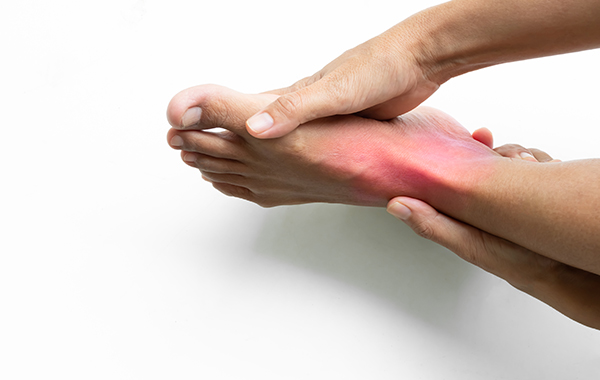Verrucae / Plantar Warts
UNDERSTANDING PLANTAR WARTS
Overview
Plantar warts, or verrucas, are growths that appear on the feet or nearby areas. They are caused by the human papillomavirus (HPV), which gets into the skin through small cracks or cuts.
These warts can become painful, especially if the callus over them thickens or if there’s a lot of pressure on the area, like when you press on it. Ignoring the problem or using acid-based home treatments can make the pain worse and lead to pus buildup.


Should I Get Treatment for Plantar Warts?
Yes, plantar warts are caused by a virus and can spread easily, so if you have one, you might notice more appearing on your feet. Not everyone who encounters the virus will get warts, as it depends on how each person’s immune system responds.
While many warts are harmless, they can be quite painful. If a wart is causing you discomfort, or if you live with someone who is more likely to develop warts—like a child, an elderly person, or someone with a weakened immune system—it’s important to see a podiatrist for treatment.
How Can I Remove Plantar Warts?
Your podiatrist will examine the wart(s) to choose the best treatment. Some common options include:
Cryotherapy:
This involves freezing the wart with a substance like liquid nitrogen. It might be a bit painful, so your podiatrist might numb the area first.
Wart Needling:
This method involves using a needle to repeatedly prick the wart. This helps activate your immune system to fight the virus causing the wart, leading to healing with less discomfort and downtime.
Since these treatments can be a bit uncomfortable, it’s a good idea to wear comfortable shoes to your appointment and plan to rest for a few hours afterward.
Frequently Asked Questions
Can I Remove Plantar Warts On My Own?
While some people try home remedies like salicylic acid or apple cider vinegar for plantar warts, it’s best to consult a foot specialist or podiatrist before using them. Over-the-counter treatments often contain acids that can burn both the wart and the surrounding skin. This can be especially risky for people with weakened immune systems, like those with diabetes or neuropathy. People with diabetes might struggle with infections or slow healing, and those with neuropathy may not feel if they’re making the problem worse.
What Happens If You Don't Remove Plantar Wart?
If plantar warts are not treated, they can become painful and spread to other areas of your body or even to others in your household. Over time, they might join together to form a larger, more complicated wart, making it harder to get rid of.
Do Plantar Warts Go Away on Their Own?
In some cases, small plantar warts might disappear on their own, depending on your overall health and immune system. However, larger or clustered warts can cause ongoing pain and spread to other areas. It’s a good idea to see a foot specialist or podiatrist to get the right treatment and reduce the chance of the warts coming back.
Are Plantar Warts a Sexually Transmitted Infection?
No, plantar warts are not a sexually transmitted infection. There are many different types of human papillomavirus (HPV), and the ones that cause plantar warts are different from the ones that cause genital warts. However, plantar warts are contagious and can spread to other parts of your body, like your toes or fingers.
Should You Try to Cut Out a Plantar Wart?
It might be tempting to scratch, cut, or pull out a plantar wart, but doing it yourself can be risky. You might not get rid of the wart completely, which can lead to it coming back or getting infected.
What Can I Do to Prevent Plantar Warts?
Human papillomavirus (HPV) thrives in Singapore’s warm and humid environment and can spread easily in places like swimming pools, locker rooms, and even home bathrooms. Kids and teenagers are especially prone to getting warts and can spread the virus to others, including family members.
To help prevent plantar warts, you can:
– Change your shoes and socks regularly.
– Avoid walking barefoot in places like swimming pools and locker rooms.
– Limit close contact with family members who have warts.
– Wash your hands thoroughly after touching warts, including your own.
Corns and calluses are hardened layers of skin that develop in areas facing high pressure, friction, and irritation. They can frequently be found on the feet, toes, hands, and fingers.
Corns and calluses are hardened layers of skin that develop in areas facing high pressure, friction, and irritation. They can frequently be found on the feet, toes, hands, and fingers.
Book your initial podiatry visit
hello@nofrillspodiatry.com
Phone
9007 1085
Open Hours
Mondays - Sundays: 9am-6pm
We're Here Whenever You Need Us
hello@nofrillspodiatry.com
Contact Us
9007 1085
Open Hours
Monday-Sundays: 10am to 7pm
Address
About
About Us
Symptoms We Help With
FAQs
Careers
Contact Us